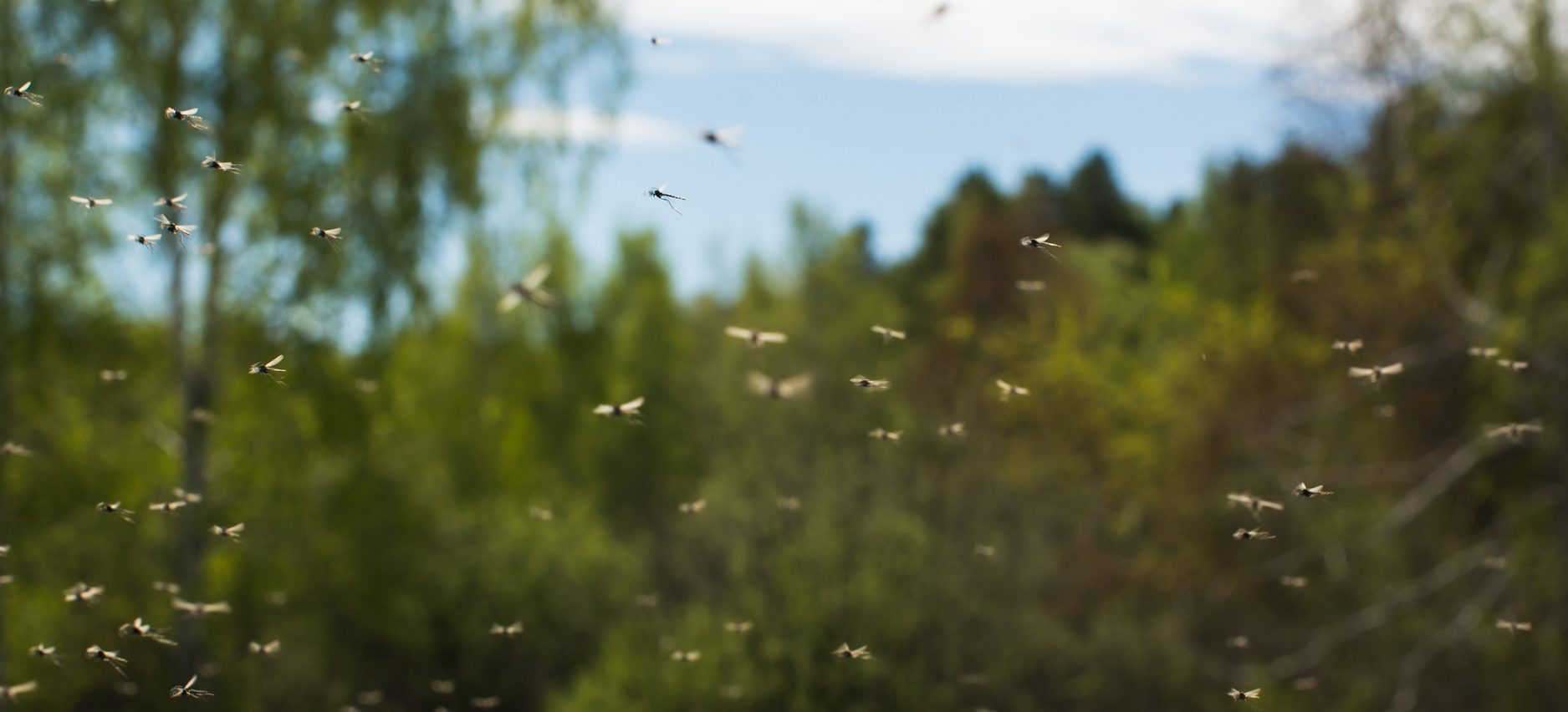Have you ever been on a summertime picnic where you had a difficult time eating because there were so many flies? You’re constantly waving your hand at the flies to keep them away from your food, but they keep returning with a vengeance. Have you ever had a case of flies in your house? The pesky flies keep returning until you figure out a way to kill them. Some people approach the challenge with an old-fashioned fly swatter. If that doesn’t solve the problem, some people resort to using an insecticide spray or fly sticky strips. Yes, it can be an icky job getting rid of flies. It soon becomes sickening to live with the flies. Because all personal efforts to get rid of the flies have failed, a professional exterminator may be needed to take care of the problem for good.
Similar to getting rid of flies, breaking bad habits is often a very difficult task. Sometimes the bad habits are just a nuisance, so we do our best to work around them. Other times, the bad habits begin to invade multiple areas of our lives. We begin to feel uncomfortable with just living with them, so we decide to work on the problem. Some of us begin with good intention, but give up because it’s hard to continue. We don’t like our bad habits, but sometimes they seem too difficult to change so we choose to live with them. As we live with our bad habits, they begin to create sometimes serious, negative consequences for us or others. At this point, we realize how necessary it has become to commit to breaking these bad habits completely.
Flies aside, let’s take a look at few bad habits, how they impact us and others and ways we can commit to breaking bad habits for good.
Engaging in gossip
It happens in all work place settings. Sometimes gossip is true while other times it is exaggerated or totally untrue. When we choose to engage in gossip, we are hurting others and ourselves. To ruminate on another person’s demise, mistake or social faux pas is basking in negativity. No one truly benefits from this behavior. It may serve as entertainment for the moment, but it is not positive or productive. While gossip can affect the reputation of the person who is the object of gossip, it also reflects poorly on the character of those engaging in the gossiping.
Knowing what we know about gossip, how can we stop this bad habit? We begin by developing an awareness of and insight to our behavior. We recognize our pattern of opening the door for gossip. We choose to simply develop the habit of thinking before we speak. If our thoughts reveal negative or derogatory tones or topics about another individual, we keep it to ourselves. By doing this, we avoid being the gossiper. When we are involved in a conversation that involves or turns to gossip, we again think before we speak and disengage as quickly as possible. As our awareness and insight becomes keen and we practice these skills consistently, we will break any bad habit of gossip that we possess.
Being late
Running late once in a while does happen. However, when we realize being late is our norm instead of the exception, there is cause for concern. Being late for a meeting may cause us to miss information, create an interruption and possibly be seen as disrespectful to others. If we are working on a group project, our lack of timeliness may increase stress and anxiety amongst other group members. It may have a trickle-down effect. Others may be counting on our work product in order to complete their assignment. This can create tension for the team. When a leader is modeling a bad habit, it may result in other individuals accepting the bad habit as acceptable. In the broader picture, a bad habit of being late can truly affect not just the individual, but can also negatively impact a project, a program or an agency as a whole.
If we see that being late has become our habit, what can we do to fix it? We can simply make a commitment to ourselves. We can practice planning ahead because it can make a huge difference in improving and correcting this bad habit. To create a new habit of being timely or early, we must learn to constantly and consistently watch the clock. If we take a moment to become aware of how much time each task actually takes, we can best plan and manage our time most effectively. For example, we learn how long our drive to work actually takes with or without traffic. Once we have this information, we begin to leave our homes earlier, adding fifteen or twenty minutes to our commute times, based on the traffic pattern connected to that time of the day.
Procrastination
Putting off tasks until the last minute can create stress and increase the chance of not getting a task completed by a deadline if anything goes wrong. Recognizing and validating the fact that some people believe they work best while under pressure is certainly a helpful approach to take and mindset to have. At the same time, many people who procrastinate and have this philosophy often also say that they wish they didn’t procrastinate, but basically accept that it is their way. As mentioned earlier, individual procrastination on work teams directly affects other team members. It is really not fair to others when we engage in this way of doing business when working with others.
Where do we begin to correct this bad habit of procrastination? We can begin by thinking of others and how our early completion of tasks can motivate others to do the same. Getting things done promptly can create momentum in a work team. The team may actually become more productive and energized as tasks are done promptly. We can think about how our stress level could be reduced if we complete our tasks prior to the deadline instead of scrambling at the last minute. If we dedicate ourselves to avoiding procrastination, we may be surprised by how it good feels to be proactive and prepared for new tasks because the older ones are already complete.
Living with bad habits is like being content living with flies in our house instead of working hard to get rid of them. Both of these situations can be annoying, frustrating and plain disgusting especially when it affects others. Instead of living in discomfort or misery, we can decide to make a commitment to exterminate the flies and bad habits while developing and living with new healthier habits.
For more reading on breaking bad habits, check out these articles:
3 Bad Workplace Habits and How to Break Them
3 More Bad Workplace Habits You Need to Break
4 Fatal Career Don’ts You’re Still Doing
Tracy Gaia is part of the GovLoop Featured Contributor program, where we feature articles by government voices from all across the country (and world!). To see more Featured Contributor posts, click here.





Wow – what a wonderful (and amazingly accurate) analogy! It’s quite true that bad habits unchecked linger until they are addressed head on. I really appreciate the tips that you provided to help overcome each of these challenges. I agree that it is important for all us to not only acknowledge our bad habits, but take the next step by mobilizing to become more effective workers and productive team members. This is a very helpful reminder!
Thanks so much for your comment, Timothy! I’m glad you enjoyed my analogy. As a side note, it’s a little funny that my inspiration for the article was an actual “real life fly fight” at my house over the past two weeks! Thank goodness the flies seem to be completely gone now. On a more serious note, I hope this article encourages others to be mindful of bad habits and how they can impact the bigger picture at times. In addition, like you, I hope that it motivates others to commit to making a change that will contribute to a more positive and productive workplace.